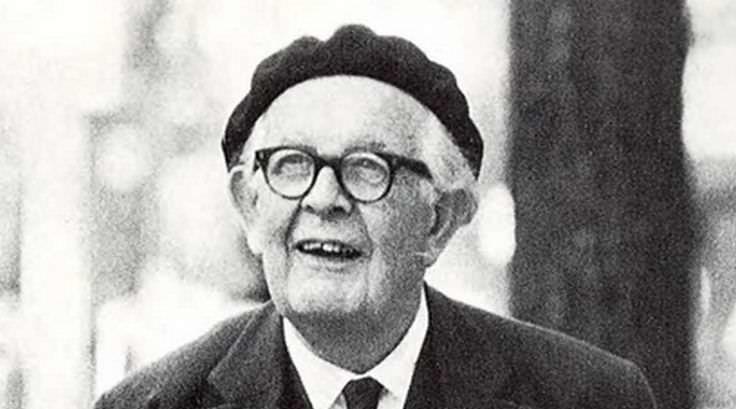
Today, we are going to talk about Piaget’s cognitive development theory.
But at first, let’s learn about Piaget;
Piaget is the first psychologist to work on cognitive development of children and is the first psychologist to take the ways of their thinking seriously.
He was born in Neuchatel, Switzerland, on 9 August 1896. In his childhood, he was a brilliant boy. He was interested in the science of nature. When he was 10, he made some observations and these observations were as high as they could be in university books. He didn’t like the librarian treating him like a child. So he wrote an article about the viewpoint of albino sparrows. And it worked.
He grew an interest in the science of spirit after Wold War II. After he went to Zurich and joined Carl Gustav Jung’s classes. He went to Parıs and he saw educations about mental disorders.
In 1918 he completed his doctorate in Neuchatel University. In 1921, he started working about child psychology. In 1924 he started to become a professor at the University of Geneva. He became the president of swiss psychology society. In 1955 founded Etymology Center in Geneva, and he administed. He solved kids' illogical movements meanings. And he explained the learning process of humanity.
Piaget listened and observed to kids for a huge portion of his career. He observed the children and their behavior for about 50 years. And he explained to the children that he thought differently than adults. And he said that children think differently than adults.
He died in Geneva on 16 September 1980.
Now we know who Piaget is. Let's talk about his theory of cognitive development.
Piaget believed that people come with two important tendencies, such as being able to form a coherent whole and adapt to the environment by systematizing their perceptions of the world.
He also says that development is the result of the interaction of soybean attraction and environmental influences.
Piaget considered development as a constructive process
Babies are born with millions of nerve cells. These nerve cells make a connection between each other with every experience, and a network is formed with these connections. These connections begin when experiences begin again. These connections contain the mental capacity to be used for a lifetime. Therefore, infancy is very important for mental development.
The structure and content of intelligence can change with age, but the functioning of the mind does not change as it is innate.
In explaining cognitive development, Piaget avoided definitions and found it appropriate to draw attention to certain characteristics of intelligence. Piaget has gathered these features under 3 headings.
1-Biological adaptation resulting from the individual's interaction with the environment
2-The balance that develops with human interaction with the environment
3-The mental processing system operated by an individual to obtain information
When Piaget explains these three features, to cover some basic concepts.
Experience:
What remains and experiences as a result of human interaction with their environments.
There is no experience when babies are firstborn. They try to adapt to their environment by developing and shaping innate reflexes. As babies gain experience, their reflexes change and turn into logical movements, such as developing the initial holding reflex and starting to use the newly learned skill by holding different items.
Schemes:
According to Piaget, schemes are the building blocks of thinking. They are essential elements in the construction of knowledge. They are similar to each other, consistent and interconnected. They turn into ways of understanding, solving and dealing with problems. They guide the acquisition of new knowledge. They govern the acquisition of new knowledge.
Organization:
It is the integration of the encountered concepts into coherent wholes. According to Piaget, thoughts are innate.
Accommodation:
For an organism to survive, it is called to give regular and consistent responses to the stimuli coming to it.
Piaget said to change the schemes and adapt to the problem solution by taking advantage of the new formations in the environment.
Assimilation:
It is the use of knowledge previously acquired and developed by an individual to explain the environment in which he or she is.
There are stages of development according to piaget.
Sensorimotor:
0-2 years
During this period, babies want to understand the world through sensory experiences such as hearing and movement experiences such as holding.
*They try to separate themselves from the world.
*They start to realize their body and manage it as they please.
*They solve simple problems by trial and error.
*They start to combine the simple movements they have and make more complicated movements
Preoperational:
2-7 years
At this stage, children try to explain the world with their words and images. Piaget divides the phase into two parts.
Symbolic part(2-4 years)
The intuitive part(4-7years)
Children are self-centered at this stage. Their imagination develops. They have strong memories.
Concrete operational
During this period, children apply their talents to their lives with concrete objects.
- They can reverse processes.
- They can solve problems with concrete tools.
- They can empathize.
- They can do some mathematical operations mentally.
Understanding abstract concepts are difficult in this period.
Formal operational:
11-18 years
It starts at age 11 and continues through adulthood. People in this period express:
- Improved analysis ability.
- They don't need objects to be able to think.
- Concepts such as belief and ideas develop in this period.
- There is a self-centered and all-knowing adolescent phenomenon.
Sources:
Ersanlı, p. d. (2016). The Cognitive development. p. K. Ersanlı içinde, Our behavior(s. 103-120). samsun: birleşik dağıtım kitapevi.
Who is Jean Piaget. (tarih yok). august 2020 tarihinde Biyografi: https://www.biyografi.net.tr/jean-piaget-kimdir/ adresinden alındı
Congratulations @hellofrommars! You have completed the following achievement on the Hive blockchain and have been rewarded with new badge(s) :
You can view your badges on your board And compare to others on the Ranking
If you no longer want to receive notifications, reply to this comment with the word
STOPDo not miss the last post from @hivebuzz: